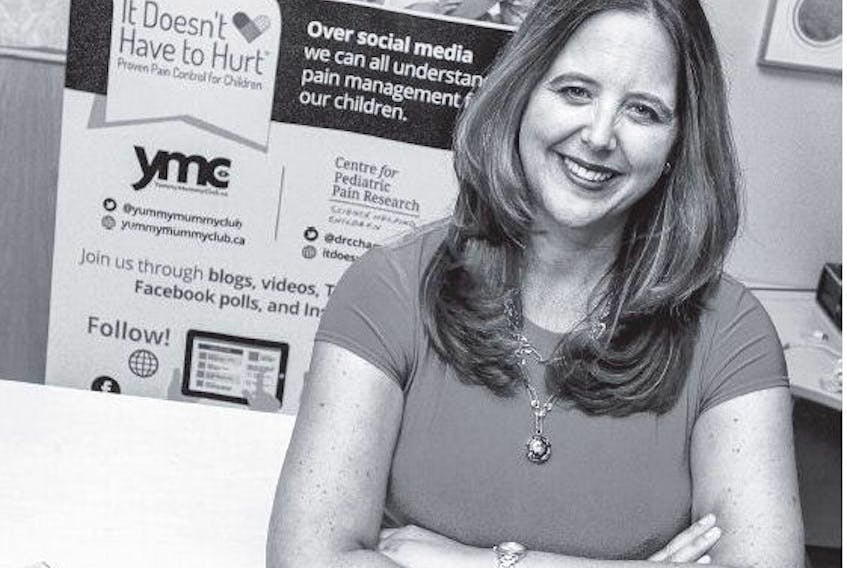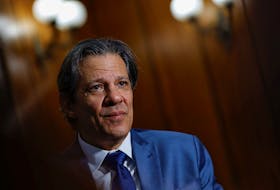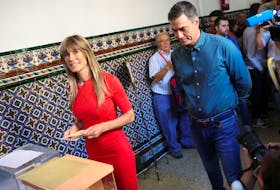Dr. Christine Chambers is a Tier 1 Canada Research Chair in Children’s Pain, a Killam Professor in pediatrics and psychology-neuroscience at Dalhousie University and has been singled out as one of Canada’s top 10 most productive women in clinical psychology.
That’s just a few paragraphs from a long and impressive professional history and yet Chambers still fields questions about her CV.
“Absolutely I’ve been having some challenges getting funding lately for my science,” she said in a recent interview in connection with the International Day of Women and Girls in Science on Sunday.
“And you know a comment that comes up a lot is that she hasn’t had as many grants or as many big grants as (other) people at her career stage.”
As a mother of four, Chambers acknowledges that it’s sometimes been a challenge to strike a worklife balance.
“Science is a very fast-moving place and it is hard to stay in the game when you’re leaving on maternity leave and so on,” she said.
Before starting her undergraduate program at Dalhousie, Chambers was thinking of a career as a child psychologist dealing with patients one on one.
“But when I was exposed to the world of scienceand the world of research, I really got hooked on how it’s a way to be a part of a bigger solution,” she said.
“It wasn’t just one day I woke up and thought, oh, I’m gonna have a career in science, it sort of just became something that I really, really enjoyed and saw as something really valuable. And by the time I finished my PhD (at UBC in Vancouver), it was just so clear I was at the right place for me to be.”
And while her love of science has never wavered, she admits frustration about the difficulties women face in the field, particularly at the upper levels.
Chambers is one of relatively few female scientists who holds a Tier 1 Canada Research Chair, which are federal grants to “outstanding researchers acknowledged as world leaders in their fields,” according to the Canada Research Chair website. The chairholder’s institution receives $200,000 annually for seven years and is renewable once.
As of October 2017, there were 761 Tier 1 chairs: Only 157 were women.
The situation improves somewhat in the Tier 2 category, which provides $100,000 annually for five years. There are 331 female Tier 2 chairholders out of 853.
Chambers referred to a Nature study, which concluded women are judged more harshly than men in the sciences.
“When women’s CVs are reviewed, they’re viewed more negatively sometimes than men,” she said. “I think there’s still a lot of bias around women. . . . I mean you have to be very driven, very focused in science, in order to move your ideas forward. And sometimes I think men are able to carry that off a little bit better than women.”
Chambers’ primary research focus these days is on how we can better assess and manage children’s pain, whether it’s temporary discomfort during procedures such as vaccinations to chronic pain conditions.
“We have this problem in science where we create knowledge and it doesn’t get translated to end users, so that’s been my focus recently,” she said.
To that end, she came up with the program It Doesn’t Have to Hurt, backed by funding from the Canadian Institutes of Health Research. The program uses social media and communications strategies to direct useful information to parents.Whether in public outreach work or in the academic world, Chambers singles out teamwork and mentoring.
“I personally did not have a lot of role models of women in science, all of my primary mentors were men. That’s why I really try to put myself out there to support the careers of women to show them that it is possible to have a career in science and have a family and do both of those well.”









